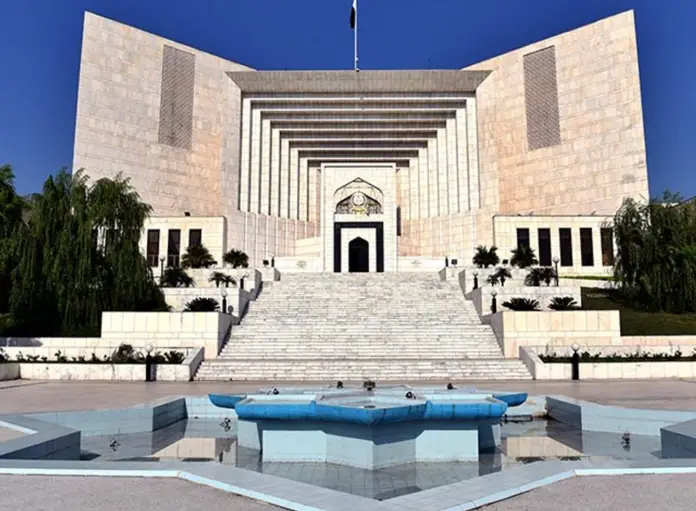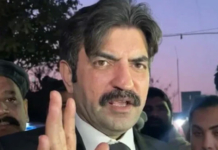The Supreme Court (SC) on Tuesday dismissed the petition challenging his long march to Pakistan Tehreek-e-Insaf (PTI) to Islamabad. The apex court has said that there was no reason to issue the court’s order after the stance of the Advocate General.
A three-member bench headed by Chief Justice Umar Ata Bandial heard the petition filed by Kamran Murtaza. Justice Athar Minallah and Justice Ayesha were the other two members of the bench.
Kamran Murtaza argued that according to Fawad Chaudhry the Long March will reach Islamabad on Friday or Saturday which could affect normal life. He further argued that the long march was the right of PTI but the rights of the common man should not be affected.
Justice Ayesha Malik asked whether the government had devised any mechanism to regulate the protests.
Justice Athar Minallah remarked that it was a matter of the executive. Directing to approach them he said that the judiciary could intervene only in extraordinary circumstances. He asked when the administration could control the situation then why the court should intervene.
Senator Kamran Murtaza said that the matter has now gone a long way after one person was killed in firing in the PTI’s Long March. He said that an entire province has been paralyzed due to the Long March.
Justice Athar Minallah said that if someone violates then the executive has wide powers. He asked if the interference of the judiciary will not weaken the administration and parliament.
Justice Ayesha Malik said that the administration should be mobilized to play its role. She said that there were protests in many places including parliament and why the court’s intervention was needed only in the long march of a particular party.
Chief Justice Umar Ata Bandial said that past violations have been mentioned in the petition. He said that the long march was a political problem which could be solved politically and interfering in such issues would create a strange situation for the court. He further said the right to protest was subject to constitutional limitations and that was not unlimited.
The court asked Additional Attorney General (AAG) Amir Rehman whether the administration had taken any decision regarding the place for the PTI’s long march. AAG said that the application had been received. He later informed the court that the administration had asked the PTI to hold a rally in Rawat and sought an affidavit which has not been completed so far.
Chief Justice Umar Ata Bandial said that if there was a clear threat of constitutional violation then the judiciary will intervene.
Justice Athar Minallah asked, “Do you want to say that the situation has gone beyond the administration’s control?” Justice Ayesha Malik said, “Does the federation not know how to fulfil its responsibility?
Later the Supreme Court disposed of the petition to stop the PTI Long March as ineffective.







